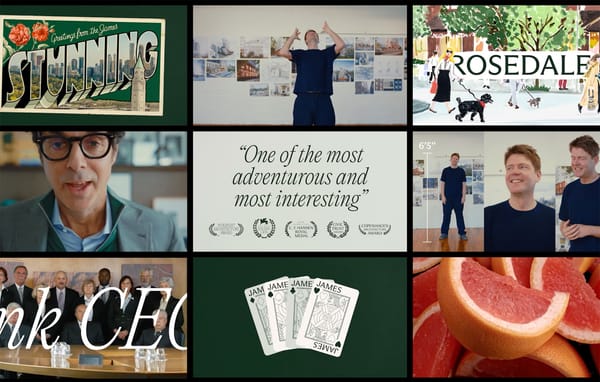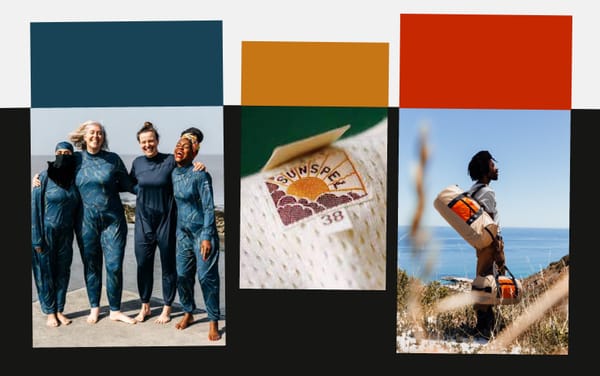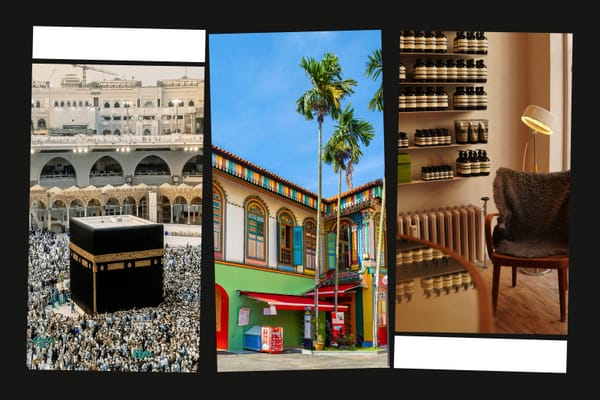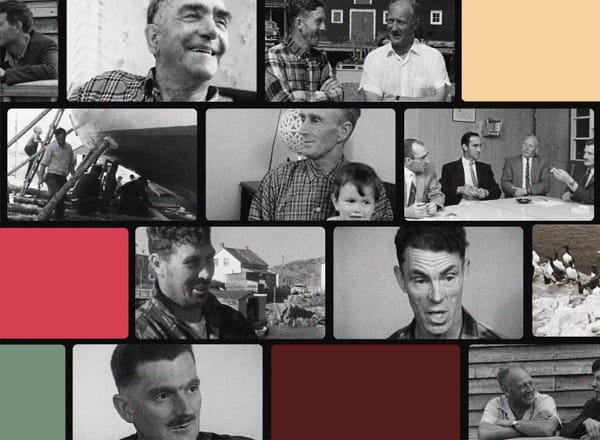Streams Count
On deliberately directing our attention to the overlooked

Hi everyone,
Canadian readers may have missed this week’s podcast episode, which was released on Thanksgiving. It’s with Sari Azout, an investor and startup founder working toward a humane web full of “joy, connection, wisdom, and intellectual curiosity.” Listen (or read the link-filled transcript!) for more on knowledge-building as a shared effort.
Below, three stories indirectly revolving around attention, an subject I return to often. (See, for example, this essay.) You’ll find:
- An interview with photographer Mark Ruwedel about his sumptuous new book documenting the Los Angeles River
- A report from British writer Robert Macfarlane’s recent Toronto lecture, which touched on the movement to secure legal rights for rivers
- A recommendation of a new, private search engine
What are you attending to? What strategies are you employing to keep control of your attention? Reply and let me know—and I’ll commiserate with how difficult it can be!
If you like what you read below, please consider sharing this newsletter with friends or on social media. Finding more like-minded folks is the surest way to help us maintain this effort.
Love all ways,
Brian
Stream Count
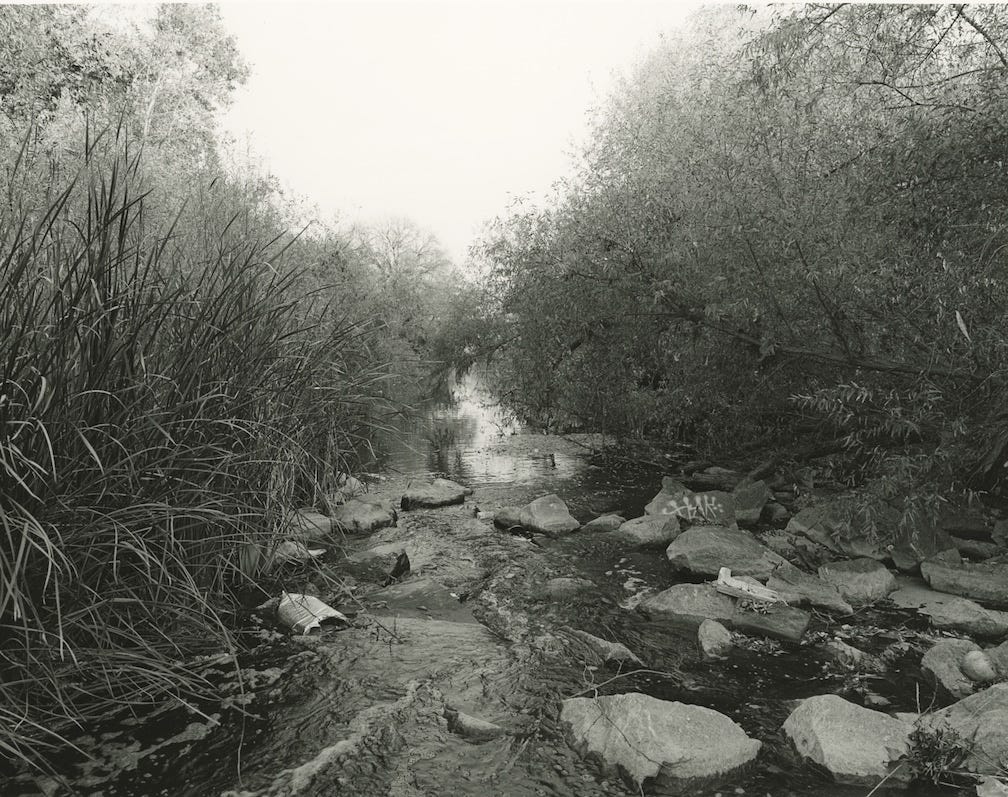
Landscape photographer Mark Ruwedel has spent decades roaming the western half of the United States and Canada, artfully documenting, in overlapping long-term series, the give and take between humans and nature.
His new book, the first in a dizzyingly ambitious four-volume series, takes the Los Angeles River as its subject. Rivers Run Through It documents its snaking path through the city, from the tributaries up north by the San Gabriel Mountains to where it meets the ocean near his home in Long Beach.
I spoke with Ruwedel about the project last week. “Because I spent so much time driving out to the desert or up into the mountains, my first inclination was to include all of that in my depiction of the city. It’s not the city or the country but this continuous mass of human and natural elements.”
What was originally meant to be a one-year effort has thus far taken a decade. Read more about this monumental project:
✰ A little more: Interviewing Mark brought to mind a two-part essay by Jenny Price on the Los Angeles River, published in The Believer in 2006. Called “Thirteen Ways of Seeing Nature in L.A.,” I realized, in re-reading it, that it’s also a trenchant call for the kinds of attention Mark is bestowing: “our foundational nature stories should see and cherish our mundane, economic, utilitarian, daily encounters with nature.” Recommended! Part 1, Part 2.
Streams Count
Last month, I joined six hundred others here in Toronto for a lecture by and interview with British landscape writer Robert Macfarlane. He had won the Weston International Award, a new literary prize celebrating excellence in nonfiction writing, and was in town to speak about the practice.
But he also spoke about the two weeks he had just spent traveling along Mutehekau Shipu, also known as the Magpie River, in Quebec. That journey was fieldwork for his forthcoming book Is a River Alive?, which also reports from Ecuador, India, and England. He chose Mutehekau Shipu because, in February 2021, the regional municipality of Minganie, Quebec and the Innu Council of Ekuanitshit adopted resolutions granting the river extensive legal rights—including the right to take legal action.
This makes Mutehekau Shipu the first natural entity in Canada to be granted legal personhood. The declaration relates to others—including landmark Constitutional rights enshrined in Ecuador in 2008—that are often described as part of a Rights of Nature movement. For Macfarlane, the Quebec river’s personhood seemed incontestible: as he wrote the final pages of the book near its rapids, “I knew absolutely that the river was, in those moments, my co-author, was the co-creator of those words, those pages. I was thinking with and being thought by the river in ways more powerful and indubitable to me than any such collaboration I’ve ever previously known.”
Earlier in the lecture, Macfarlane had claimed: “I know that language, well used, is a summoner of spirits. It’s quick and it’s quickening.” It’s a belief I share, and part of why I’m fascinated by his forthcoming book is the opportunity it represents: can his writing bring a gracefulness and lucidity to the arguments made by people advocating for the rights of nature? Will it help people not otherwise attentive to such issues become familiar and comfortable with them?
To get a sense for yourself, watch his roughly fifteen-minute talk or read his Globe & Mail op-ed summarizing its themes. And for more on Mutehekau Shipu, see this Canadian Geographic feature.
A Word from Our Sponsor (which is … us)
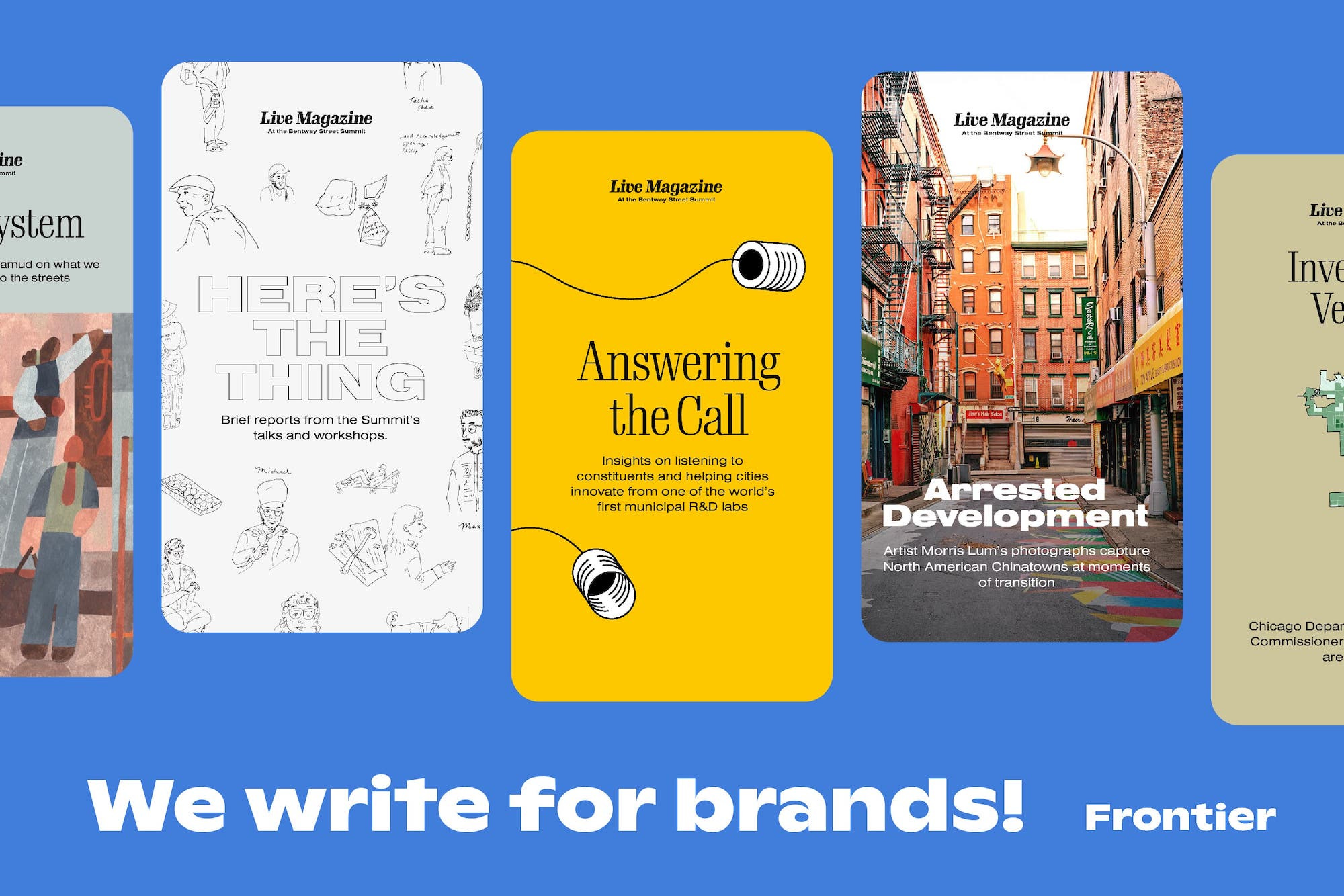
I came to know and care about the Rights of Nature movement in part through working with the Honnold Foundation, which has supported La Guardia of Sinangoe, an Indigenous group that protects the ancestral lands of the Cofán from mining and other extractive industries. Frontier Design, the studio behind Frontier Magazine, provides editorial services for organizations looking to amplify their stories. We write, edit, and produce content strategies for websites, books, launch videos, campaigns, annual reports, and more. Reply to this email to learn how we can help you.
Recommendation: Kagi
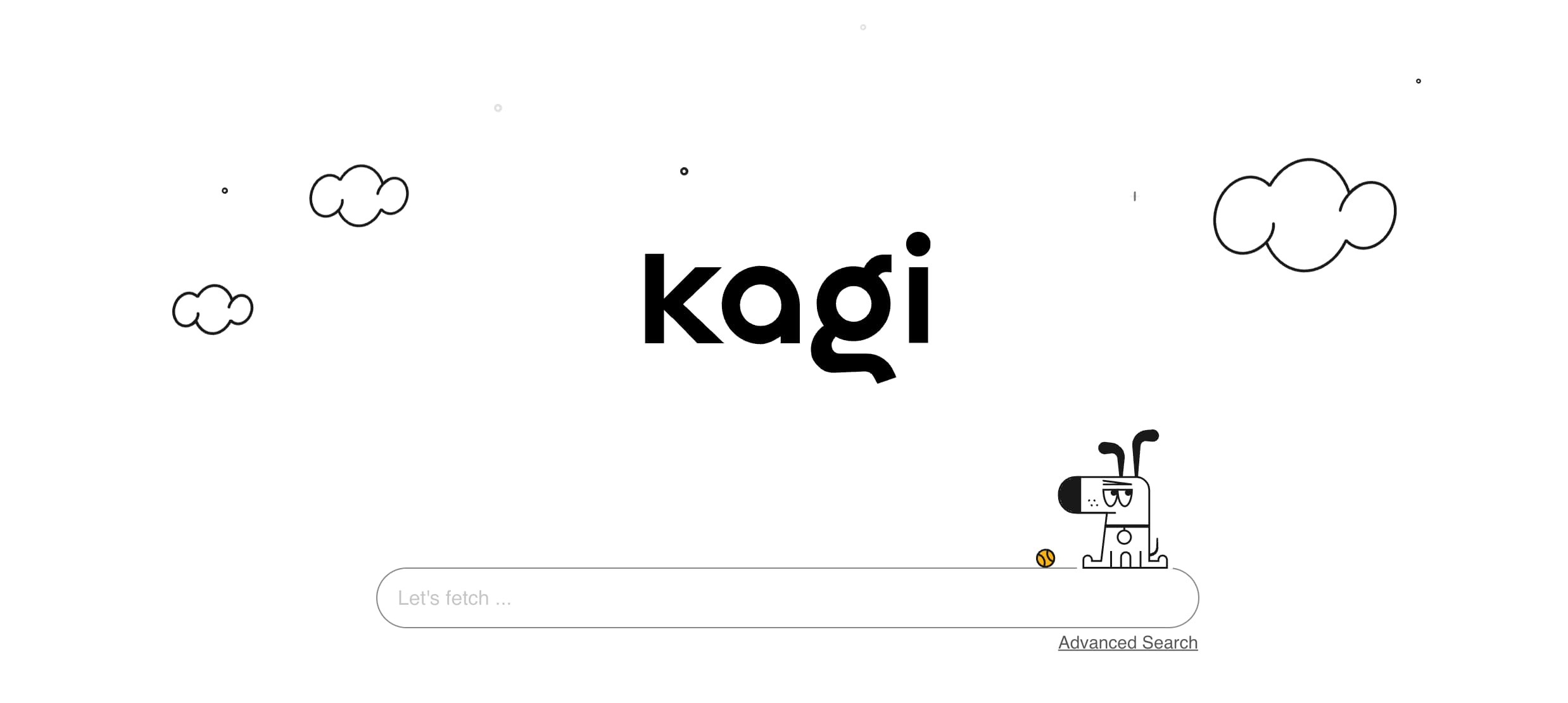
Last week, Wired, reporting from Google’s antitrust trial, published a story titled “How Google Alters Search Queries to Get at Your Wallet.” It went viral on social media; Google pushed back and the editors have since taken it down, though the author stands by her work. One takeaway for me: the fact that such a headline is credible should give us pause when using Google to search the web.
DuckDuckGo has been my preferred alternative for years, but in recent months I have explored Kagi, a fast, private, customizable search engine. It’s been such a good experience that I just upgraded to a paid account.
Part of what makes it good is that, in addition to its own index of the web, it calls anonymously to Google and other services, both major and minor, to find the best results. You can then personalize those further, essentially upvoting and downvoting individual sites. One of the first things I did was downrank Pinterest, which clogs up image searches with locked and context-free data. (I’m not the only one: it’s the most-blocked site among Kagi’s users.)
Why pay for a search engine? Cheekily, Kagi’s founder put that question to Bard, Google’s AI product, which gave a pretty good answer. Want to give it a shot? Kagi offers 100 searches free.
🔗 Good links
- 🏛️ Ross Andersen, one of my favorite writers, imagines a future for the “encyclopedic museum”
- 🐟 “After more than two decades of persistent efforts … the four dams along the California-Oregon border have finally started to be dismantled.”
- 🛰️ The secret history of GPS
- 🖋️💻 Meg Miller on “the online publications bridging poetry and code”
- 📚 A group of 1970s campus librarians foresaw our world of distributed knowledge and designed search tools for it
Still reading all the way down here? Picture me in my home office with my hand raised, ready to give you a high five. Until next week …


